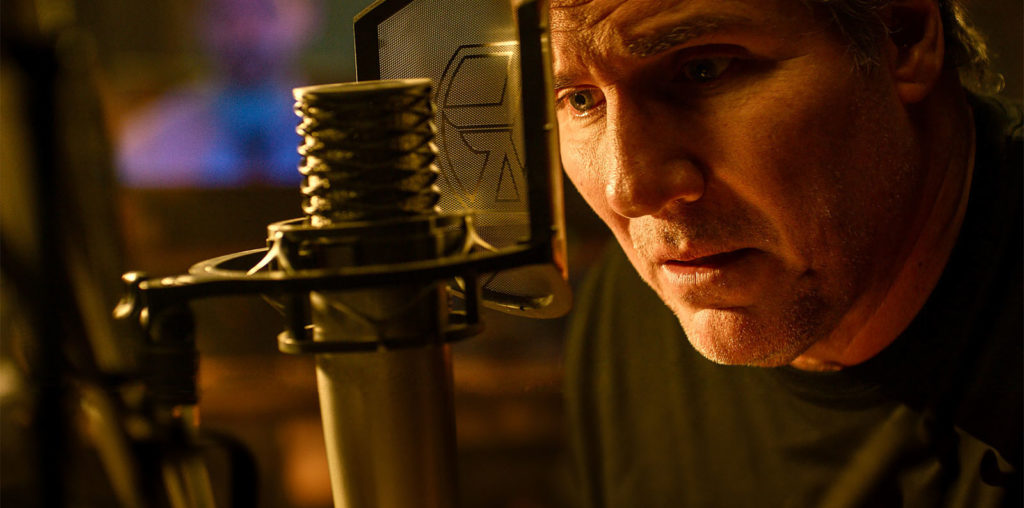
SPOILERS AHEAD!
It hasn’t been a very good couple of years for the historical epic. Last year’s craptacular trifecta of King Arthur, Troy, and Alexander raised serious questions about whether or not anyone would be able to put together another gripping saga (one that didn’t involve hobbits, anyway). As if in answer, along comes Ridley Scott. Scott helmed one of the last critically acclaimed examples of the genre – 2000’s Gladiator – after all. Surely if anyone could capture the essence of the battlefield blockbuster and bring some respect back to the epic, it’d be him, right?
Not quite, as it turns out. “Kingdom of Heaven,” like all of Scott’s films, is a visually stunning affair, with jaw-dropping battle sequences and outstanding locations. And while the story of Balian (Orlando Bloom), a young blacksmith who travels to Jerusalem, is somewhat interesting, the ensuing film carries with it a strange sense of detachment, as if the sheer enormity of the scale involved has caused everyone to withdraw from actual engagement in the events surrounding them.
“Kingdom of Heaven” opens in France, where the wife of Balian, who committed suicide following the death of their child, has just been buried. Shortly thereafter, he is approached by Godfrey (Liam Neeson), a Crusader knight who – it turns out – is the young man’s father and is returning to atone for impregnating and abandoning his mother. Having no reason to stick around (and having unwisely murdered the local grave-robbing priest), Balian agrees to accompany Godfrey back to Jerusalem. Matters are complicated by the appearance of the local gendarmerie (or whatever), who are determined to arrest Balian. A battle ensues, and Godfrey’s knights, though outnumbered, win the day, but not before Godfrey himself is mortally wounded.
Balian is knighted by his father before he dies and inherits his title, and then makes his way to Jerusalem, home to an uneasy truce between the Christians and Muslims. Scott hammers home the idea of Jerusalem as a kind of “new world” where men can get a fresh start, and Balian is obviously ripe for a do-over. He’s barely dusted off from his trip before he’s made the acquaintance of Sibyllah (Eva Green), the toothsome wife of one of the local Knights Templar, and her brother, the leper King Baldwin (a masked Edward Norton). Balian moves into his father’s estate and assumes his father’s old job of guarding the trade route into Jerusalem, but is soon drawn into the intrigue and plotting that surrounds him. And, of course, he nails Sibyllah.
It all sounds juicy, but Bloom is sadly not up to the task at hand. He’s added 20 pounds of muscle in order to play the part of blacksmith more convincingly, but beefcake doesn’t equal dramatic heft. His range of emotional _expression runs the gamut from “annoyed” to “more annoyed,” and a great many things about Jerusalem annoy the man looking to live as a “true knight.” Everyone from his father to the King constantly urge Balian to be a good person and uphold the knightly code, which leads to some of “Kingdom of Heaven’s” more glaring problems.
Leaving aside the question of just how virtuous it is for a knight to sleep with another man’s wife, absolutely everything bad that happens in this movie is Balian’s fault. His father takes a fatal arrow and half of his knights are slain because the local authorities are after Balian for murder. Balian doesn’t take control of the army when the option is floated by Baldwin, or accept Baldwin’s offer to dissolve Sibyllah’s marriage to the evil Guy (Martin Csokas), because it wouldn’t become a true knight (adultery is apparently peachy keen). This leaves the door open for Guy to assume command and take the throne, leading to the deaths of untold thousands. Good thinking.
It’s impossible to look at a movie about the Crusades without at least alluding to the current, uh, tensions between the West and Islam. Scott, if anything, has overcompensated for the English-speaking world’s distrust of Muslims by making Saracen leader Saladin (Ghassan Massoud) and his cronies noble to a fault (though to be fair, King Baldwin and his deputy, played by Jeremy Irons are also depicted as honorable). Scott’s scorn is reserved for the fundamentalists on both sides: Saladin’s mullah constantly urges war against the infidels, while the knights Templar are similarly goaded by their priest into acts of holy violence (which is hardly necessary, since the Templars are depicted here as little more than armored hooligans). In the end, the voices of reason are drowned out by the fanatics, and Guy and his sidekick Sir Reynald (Brendan Gleeson, having way too much fun) break the truce, spurring the Saracens to attack the city. It is left to Balian to man the walls and resist the siege.
As with “Troy,” the ostensible star of “Kingdom of Heaven” is outclassed by his supporting cast. Just as Brad Pitt was no match for Peter O’Toole, Bloom’s relative lack of chops is all the more apparent in scenes with Neeson, Irons, and Norton, who acts more convincingly with his face fully concealed than Bloom manages half-clothed. “Kingdom” would have also benefited from a lead with a bit more gravitas.
If “Kingdom of Heaven” is effective at anything (aside from giving good siege), it’s in its portrayal of how the regular, everyday people on both sides of a war are completely screwed. This is hardly new, but serves as a timely reminder that armed conflict has consequences far away from the battlefield. Scott is also quite contemptuous of zealots, whatever their faith (one of my favorite moments came when the bishop of Jerusalem, facing the overwhelming Saracen onslaught, tells his charges, “Convert to Islam. Repent later.”). These moments are few and far between, unfortunately. And a handful of nifty battle scenes and some decent performances aren’t quite enough to make “Kingdom” memorable.
Disagree with this review? Think you can write a better one? Go right ahead in Film Threat’s BACK TALK section! Click here>>>

